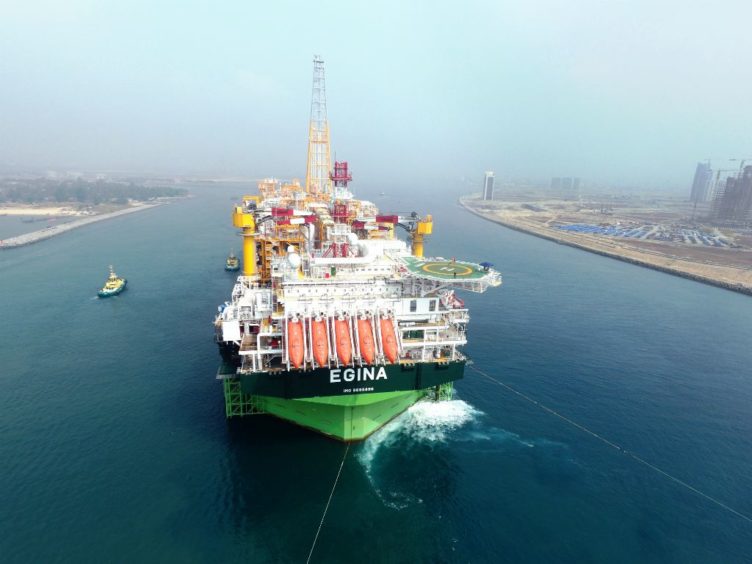
Nigerian President Muhammadu Buhari has set out a plan of passing legislation overhauling the country’s hydrocarbon industry by the end of 2020.
There are serious doubts over whether this can be achieved but the importance of this bill has also been somewhat overstated. While greater legislative certainty should help provide support for investors, there are a number of other areas that prove challenging.
The drive from the government has focused on missed opportunities. Nigerian Minister of State for Petroleum Resources Timipre Sylva blamed the failure of the PIB to be passed for stagnation in the industry. In particular, the minister attributed the lack of new resources discovered in the country to the lack of the PIB.
Plans for the Petroleum Industry Bill (PIB) have been under way for more than 10 years but it has been slow going. “The process is starting all over again, from ground zero,” Dayo Okusami a partner at Templars law firm told Energy Voice. “With a new Parliament, the whole bill starts again.”
Nigeria’s Ninth Assembly was launched in June. The Petroleum Industry Governance Bill (PIGB), a narrowed-down version of the PIB, passed through the legislature’s two houses in 2018 during the Eighth Assembly but failed after Buhari refused to sign the bill.
“In theory, the path of least resistance might be to redo the PIGB but, given there’s a new set of legislators in place, it is debatable as to whether they would push the same bill,” Okusami continued.
“The bill is likely to change from previous versions. One of the reasons the president refused to sign off on the bill last year was linked to worries about how revenues would be divided and held under the new system. Buhari was also hesitant to grant a major victory to the assembly, which had been led by opponents. The National Assembly is now firmly in the grip of his allies so that concern has been erased,” Control Risks Group’s Sa’eed Husaini said to Energy Voice.
There are some grounds for optimism over the bill’s prospects. The ruling All Progressives Congress (APC) appears united in wanting to make progress on the legislation and it has broad support from the commercial players. As it begins to take shape and details emerge, this support is likely to fragment as different interests push for different outcomes.
In what could be seen as a demonstration of the government’s newfound determination is the pressure to pass the Deep Offshore and Inland Basin Production Sharing Contract (Amendment) Bill 2018.
Husaini went on to say that some of the local groups have been more sceptical about the PIB, with some worries about privatisation and plans to break up the Nigerian National Petroleum Corp. (NNPC). “There are concerns about the new proposals, including about the exact role of the national oil company and the structure of the new bureaucracy.” State governments are also concerned about potential threats to the derivation formula, under which they receive a share of oil revenues.
“The PIB would definitely have an impact on investment decisions,” Okusami said, citing some of the recent uncertainties surrounding production-sharing contracts (PSCs) and royalty rates. “That has an impact on investments and the PIB would amend that law. But there have been delays in the deepwater for a number of reasons, including contract approvals. Some think the PIB would be a magic bullet but the lack of this law did not slow down the Usan or Egina plans.”
Operators making plans for projects can secure provisions and stabilisation clauses to safeguard themselves from changes in the legal sphere. “I do believe that if the PIB was passed the certainty would lead to an increase in activity, but that in itself has not stopped those who are operating here from working, or new parties from entering,” the Templars lawyer continued.
Husaini said the major question for investors was security. “Will pipelines continue to be vandalised? Are personnel safe? These will continue regardless of the bill.” There has been a lull in major attacks in the Niger Delta since 2016, when those involved in the insurgency were brought into the amnesty programme. “There is always the possibility that new groups may emerge and issue threats – and execute on them. The structural drivers of insecurity remain in place.”
Clearing up legislation around the sector “will bring much-needed light and transparency to the sector and for those players already present it will put Nigeria in a better light,” to the benefit of both majors and local companies. “It should speed up the decision-making process,” Husaini said, and provide more clarity about “who in the government is the interlocutor”.
Okusami went on to call for progress in other areas, most particularly in the availability of acreage. “The PIB has an impact on finances and governance. But without offering new acreage – on and offshore – it is just playing around in the same space.”
